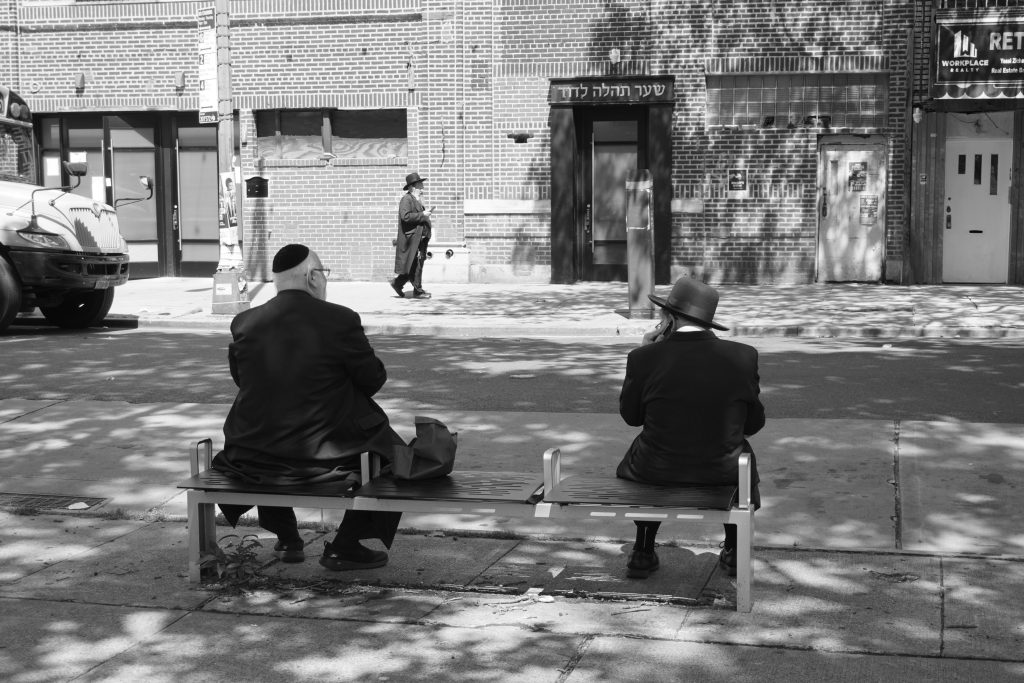Celebrating Rosh Hashanah: The Jewish New Year and Its Traditions
As the sun sets on October 2, Jewish communities around the world will gather to usher in Rosh Hashanah, the Jewish New Year. This two-day celebration marks not only the beginning of a new year but also the commencement of the High Holy Days, a period of reflection, prayer, and repentance. Rosh Hashanah, which translates to ‘the head of the year,’ is steeped in rich traditions that emphasize both spiritual renewal and community gathering.
One of the most cherished customs associated with Rosh Hashanah is the consumption of round challah, a special bread that symbolizes the cycle of life and the continuity of time. Families often gather around the table, sharing this sweet bread while reciting blessings and prayers. Another significant ritual involves the sounding of the shofar, a ram’s horn that is blown during synagogue services to herald the New Year. The piercing sound is a call to repentance, awakening listeners to reflect on their actions over the past year.
In addition to these age-old traditions, Rosh Hashanah serves as a moment for families to come together, to share meals, and to extend wishes of ‘Shana Tova,’ meaning ‘a good year’ in Hebrew. Many families engage in a symbolic practice of dipping apples in honey, representing hopes for a sweet year ahead. This act of sharing food and blessings strengthens communal bonds and fosters a sense of belonging.
However, this year’s celebrations occur amidst heightened tensions across the globe. With escalating conflicts in the Middle East, law enforcement agencies, particularly in areas with significant Jewish populations like Southern California, are ramping up security measures. Their strategic presence at synagogues and community centers is aimed at ensuring the safety of those gathering for the holiday. This precaution reflects a broader concern for community safety during a time traditionally dedicated to peace and introspection.
The Jewish community, estimated to consist of around 7.3 million individuals in Israel and 6.3 million in the United States, embodies a rich tapestry of traditions and beliefs. The recent increase in the global Jewish population indicates a growing community that continues to celebrate its heritage with pride and resilience.
As Rosh Hashanah approaches, many are reminded of the importance of unity and support within their communities. The observances, prayers, and gatherings during this time are not only a reflection of faith but also a testament to the strength and perseverance of the Jewish people.
As we enter this New Year, individuals are encouraged to take a moment for introspection, to set intentions for the months ahead, and to embrace the spirit of renewal that Rosh Hashanah brings. Whether through the sharing of meals, the sounding of the shofar, or the quiet moments of reflection, this holiday serves as a powerful reminder of the importance of community, family, and faith in the face of adversity.
Tags: Challah, High Holy Days, Jewish New Year, Rosh Hashanah, Shofar, Traditions
Celebrating Rosh Hashanah: A Time for Reflection and Renewal
As the sun sets on Wednesday, Jews around the globe will gather to celebrate Rosh Hashanah, the Jewish New Year, marking a significant time for reflection, renewal, and community. This year, the festivities begin the evening of October 2, 2024, ushering in not just a new year, but an opportunity for spiritual rebirth.
Rosh Hashanah, which translates to ‘Head of the Year’ in Hebrew, is steeped in rich traditions that invite participants to engage in meaningful rituals. Families will come together to enjoy festive meals featuring symbolic foods such as apples and honey, representing the hope for a sweet year to come. The days leading up to this occasion are filled with preparation, as many don new clothes and gather with loved ones to celebrate the importance of unity and togetherness.
The period of Rosh Hashanah is also marked by introspection and judgment. It offers an invitation to reflect on the past year—our triumphs and challenges—while acknowledging our shortcomings. As Rabbi Peretz Robinson notes, this time serves as a powerful call for rebirth, encouraging individuals to strive for personal growth and transformation.
During these High Holy Days, the shofar, a traditional ram’s horn, will be blown in synagogues, signaling the importance of awakening the spirit and fostering a sense of communal responsibility. The sound of the shofar serves as a reminder for individuals to engage in self-examination and seek atonement for any wrongdoings, thus promoting a culture of forgiveness and healing within the community.
In addition to personal reflection, Rosh Hashanah encourages a collective approach to spirituality. Communities will come together for prayers and services that focus on themes of peace and unity. This year, as the world continues to face unprecedented challenges, the message of Rosh Hashanah resonates more than ever. It calls upon individuals to work towards harmony and understanding, both within their communities and across the globe.
The metaphor of the “King in the Field,” introduced by Rabbi Shneur Zalman of Liadi, emphasizes the accessibility of divine presence during this time. It suggests that God is near, ready to listen to prayers and grant forgiveness, making Rosh Hashanah a particularly poignant moment for many. This profound connection to spirituality is a cornerstone of the Jewish faith, reinforcing the belief that everyone has the capacity for redemption and renewal.
As families and friends gather to celebrate Rosh Hashanah, they not only honor their ancestors and cultural heritage but also set intentions for the year to come. This blend of tradition, reflection, and community spirit is what makes Rosh Hashanah a cherished time for Jews worldwide. As the new year unfolds, the hope is for growth, connection, and a renewed commitment to living with purpose and kindness.
In embracing the themes of Rosh Hashanah, we are reminded that every ending paves the way for a new beginning. As we enter this Jewish New Year, may we all find the strength to reflect on our past, embrace our present, and look forward to a future filled with promise and positivity.
Tags: Community, Jewish New Year, Reflection, Rosh Hashanah, tradition
Celebrating Rosh Hashanah: A Sweet Start to the Jewish New Year
As the Jewish community prepares to usher in Rosh Hashanah, the festival that marks the beginning of the new year in the Hebrew calendar, traditions and customs come to the forefront, enriching the spiritual significance of this time. One of the most cherished practices during Rosh Hashanah is the symbolic act of eating apple slices dipped in honey. This custom, which signifies a wish for a sweet year ahead, is rooted in ancient teachings and has been embraced by generations.
Rabbi Jacob Molin, known as The Maharil, highlighted in the 14th century the importance of this tradition, linking it to deeper spiritual meanings found in religious texts. The sweet taste of honey represents joy and sweetness in life, and as families gather around the table, they reflect on the past year while expressing hopes for the future.
This time of year is also marked by reflection and repentance, as individuals seek to improve themselves in the coming months. The blowing of the shofar, a ram’s horn, serves as a powerful reminder of this commitment to personal growth. The sound of the shofar calls the community to attention and signifies the importance of introspection and the pursuit of a meaningful life.
Beyond the food and rituals, Rosh Hashanah embodies a sense of community and belonging. Families come together, often traveling from far and wide to celebrate with loved ones. The festive meals are filled with traditional dishes, each carrying its own significance, such as round challah bread symbolizing the cycle of the year.
As the holiday approaches, synagogues prepare for special services, where prayers are recited, and the congregation gathers in unity. These services are not just about worship; they also reinforce the bonds within the community. For many, Rosh Hashanah is a time to reconnect with faith and heritage, providing a sense of stability in a rapidly changing world.
In recent years, the celebration of Rosh Hashanah has transcended geographical boundaries, with Jewish communities worldwide embracing the customs and rituals. From New York to Jerusalem, the essence of the holiday remains unchanged, resonating with the core values of hope, renewal, and resilience.
As we approach Rosh Hashanah, it’s a reminder that each new year brings opportunities for fresh starts and new beginnings. The melding of tradition with contemporary life illustrates the adaptability of these customs, ensuring they remain relevant even in modern society.
In conclusion, Rosh Hashanah is a celebration that encapsulates the spirit of renewal, community, and the sweetness of life. As families gather to partake in age-old traditions, they not only honor their heritage but also embrace the future with optimism and hope. May this Rosh Hashanah usher in a year filled with blessings, happiness, and prosperity for all.
Tags: Community, New Year, Rosh Hashanah, tradition



